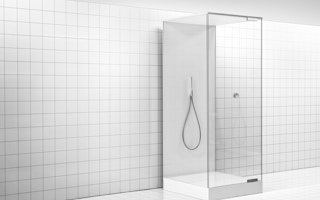The way astronauts save water in outer space could turn out to be the “down-to-earth” solution to the looming water crisis and sanitation issues in many cities here on Earth. On a smaller scale, it’ll fix a bathroom crisis if water from the tap suddenly dries up when someone’s in the middle of a shower.
To continue reading, subscribe to Eco‑Business.
There's something for everyone. We offer a range of subscription plans.
- Access our stories and receive our Insights Weekly newsletter with the free EB Member plan.
- Unlock unlimited access to our content and archive with EB Circle.
- Publish your content with EB Premium.
Swedish technology firm Orbital Systems commercially launched in December the Shower of the Future, a cutting-edge shower system that reduces one’s water and carbon footprint by recycling water and hence, cut water consumption by up to 90 per cent.
The highly innovative water recycling technology used to capture water from the shower is indeed inspired by rocket science, the result of an academic collaboration with the United States’s National Aeronautics Space Administration (NASA), Orbital says on its website.
So how does it work? A shower loop connected to the water pipe is filled with only about five litres of water and is digitally controlled to reach the desired temperature. Once the temperature is set, the shower loop closes automatically, explained Orbital.
“
The genius of this solution is that it reuses the water instead of just reducing water use like other similar products.
Esben Alslund-Lanthén, research analyst, Sustainia
While the shower is being used, sensors determine if the water is too contaminated, and if not, the water goes through the purification capsules located at the shower floor, and once filtered, the water is pumped back up to the shower loop for reuse, completing the recycling loop, the tech firm said.
The sensors detect the quality of the incoming water and if it can’t be recycled, the water will be flushed out of the system. So if someone urinates or empties an entire shampoo bottle in the shower, the highly contaminated water will be discarded and the shower loop will have a fresh supply of water, Orbital noted.
The product is gaining popularity in Sweden, and is now used by the Swedish Armed Forces, the City of Malmo and local hotel group, Hotel Master Johan, claiming a ‘first’ in the hospitality industry worldwide.
Mehrdad Mahdjoubi, managing director and founder of Orbital Systems, who previously worked on a collaborative project with NASA’s Johnson Space Center, said the potential to reduce water consumption for the hotel sector, which is known to have a high water “footprint”, is huge.
“Hotel guests often take significantly longer showers than they usually do at home. They often think that it is nice to get to waste water and energy when they are not at home and this has long been a major challenge in the hotel industry,” commented Mahdjoubi.
This technology offers hotels an opportunity to reduce water usage, which would be a major benefit to the sector, he added.
Orbital System claims its purification capsule can filter unwanted particles including metals, oil, viruses and bacteria. “The level of purity is not only equal to, but above, conventional water taps,” it noted.
For its strong potential in solving a pressing environmental issue, Orbital Systems was included in Scandinavian think tank Sustainia’s 100 leading sustainability innovations in June last year.
“The genius of this solution is that it reuses the water instead of just reducing water use like other similar products,” Sustainia research analyst Esben Alslund-Lanthén told The Guardian.
The water and energy usage, as well as the lifespan of the purifier, can also be monitored through a mobile application so users can keep track of the numbers.
The firm said consumers can now order the product, which comes at a price of up to US$5,000, technology site CNET has learned.










